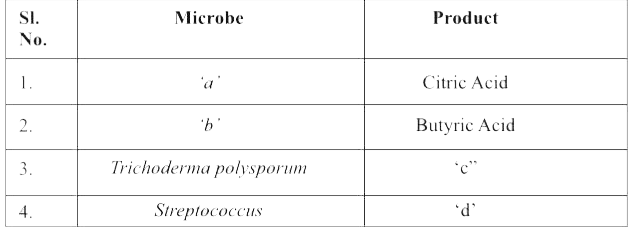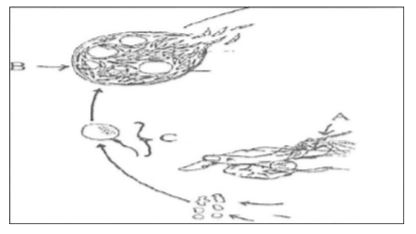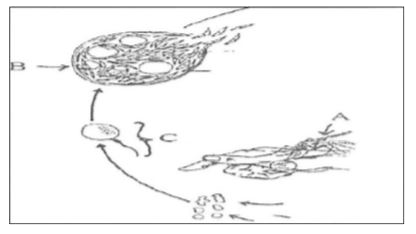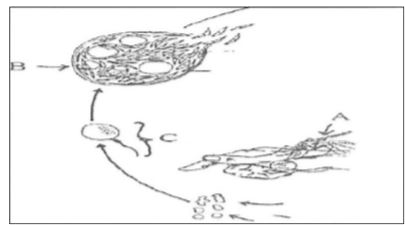Complete Solutions to SECTION C of chapter PRACTICE QUESTION PAPER-2 of Class 12 book with complete answers and questions
| Class 12 | BIOLOGY |
| Chapter | PRACTICE QUESTION PAPER-2 |
| SUPPORT MATERIAL | SECTION C |
| Number Of Questions | 21 |
| Academic Year | 2023-24 |
Continued self-pollination results in inbreeding depression. Plants have developed strategies to prevent both autogamy and geitonogamy. Write briefly about the strategies in plants which help in doing so
View SolutionHow has plant breeding helped in improving the variety of sugarcane?
View SolutionDraw a schematic diagram of a part of double stranded dinucleotide DNA chain having all the fourtitrogenous bases and showing the correct polarity.
View SolutionSome traits in human beings show criss-cross inheritance. Name any two such traits. With a suitable cross show the inheritance of any one of such traits which result in one-fourth of the progeny with the genetic defect.
View SolutionThe rate of appearance of new forms is linked to the life cycle or the life span. Explain with a suitable example.
View SolutionWhat kind of detritus decomposes at a faster rate? Name any two factors that enhance the rate of decomposition.
View SolutionWhat are the various steps of humification and mineralisation that occurs during the process of decomposition?
View SolutionWhat are biofertilisers? Name a symbiotic fungus which forms mycorrhizae.
View SolutionIdentify a, b, c and d in the following table:

View SolutionHow does RNA interference help in developing resistance in tobacco plant against nematode infection?
View SolutionGonadotropin releasing hormone (GnRH), released in males on attaining puberty results in release of gonadotropins. Name the gonadotropins released by the hormone and the roles of gonadotropins in males.
View SolutionOva from the wife/donor (female) and sperms from the husband/donor (male) are collected and are induced to form zygote under simulated conditions in the laboratory. Which techniques are used after this?
View SolutionA segment of DNA has a total of 1500 nucleotides, out of which 280 are adenine containing nucleotides. With suitable reasons and step by step calculation, determine the number of pyrirnidines bases possessed by this segment of DNA.
View SolutionExplain the three steps of Hershey and Chase experiment that helped them to prove that DNA is the hereditary material. What were the interpretations of their experiment?
View SolutionWhy isn't DNA able to pass through the cell membrane? How bacteria are made competent to take up a plasmid?
View SolutionHow is the alien DNA introduced in a plant cell? Give examples of pathogens that can be used as a vector.
View SolutionWith the help of a schematic diagram show the use of Eco RI for making a recombinant DNA. Name the palindromic sequence recognised by Eco RI
View SolutionA part of life cycle of Plasmodium is given below. Answer the questions on the basis of the life cycle.

Name the event 'C' and the organ where this event occurs
View SolutionA part of life cycle of Plasmodium is given below. Answer the questions on the basis of the life cycle.

Name the organ 'B' and the cells being released from it.
View SolutionA part of life cycle of Plasmodium is given below. Answer the questions on the basis of the life cycle.

Name the most fatal species of Plasmodium and mention the role of 'A' in the life cycle of Plasmodium.
View SolutionWhy are co-extinction and introduction of alien species considered responsible for the loss of biodiversity?
View Solution
SECTION C questions and complete solutions for chapter PRACTICE QUESTION PAPER-2 of CBSE COMPLEMENTARY MATERIAL BIOLOGY (HINGLISH) of Class 12